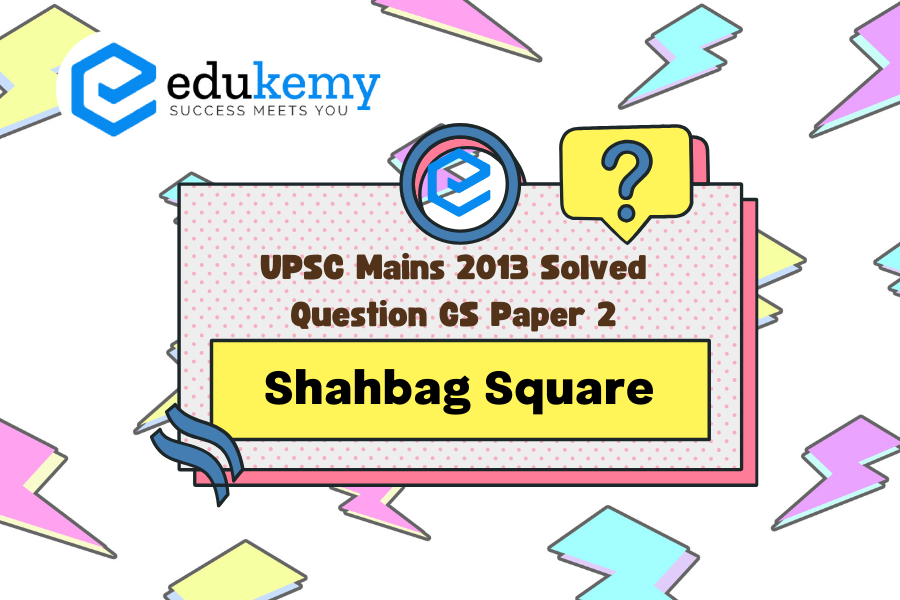The protests in Shahbag Square in Dhaka, Bangladesh, serve as a poignant reflection of the deep-rooted societal division between nationalist and Islamic forces within the nation. As thousands of Bangladeshi citizens gather in fervent demonstration, demanding justice for war crimes committed during the country’s 1971 Liberation War, the stark ideological clash between those advocating for secular nationalism and those espousing Islamic principles becomes glaringly evident. This schism not only encapsulates the struggle for historical accountability and justice within Bangladesh but also holds profound significance for neighboring India. As India shares a complex geopolitical relationship with Bangladesh, marked by historical ties and contemporary political dynamics, the outcome of these protests reverberates across the border. For India, a predominantly secular democracy with its own diverse religious and cultural fabric, the events in Shahbag Square underscore the importance of supporting democratic values, human rights, and secularism in the region. Furthermore, the rise of fundamentalism in Bangladesh poses potential security concerns for India, particularly in border areas prone to cross-border extremism and radicalization. Thus, the protests in Shahbag Square not only signify a domestic struggle for justice and identity but also prompt India to carefully navigate its diplomatic and strategic engagements with its neighbor, emphasizing the promotion of democratic principles and religious pluralism.
Tag: India and its neighbourhood- relations covering sub-topics such as historic relations, Indian initiatives in neighbourhood countries and vice versa, challenges and solutions etc.
Contents
Decoding the Question:
- In the Introduction, try to write about the protests in Shahbag Square in Dhaka.
- In Body,
- Discuss the fundamental split between nationalist and fundamentalist.
- Write the significance of the split for India:
- Try to conclude the answer as per the context of the question
Answer:
February 2013, the Bloggers and Online Activist Network (BOAN) initiated the call to occupy Shahbag and demand capital punishment for the secretary-general of the Islamist party Jamat-e-Islami Abdul Quader Mollah, hours after he was sentenced to life in prison on 344 counts of murder, rape, and torture committed during 1971.
Fundamental Split in Society Between the Nationalists and Islamic Forces:
- Nationalist and people: Demanded to put a ban on the Bangladesh Jamaat-e-Islami party from politics and boycott of institutions affiliated with the party.
- NRI Bangladeshis: Protesters considered the punishment too lenient given that he was convicted on five of the six counts of gruesome war crimes. The protest soon spread across the country. Abroad, the protest attracted massive support from non-resident Bangladeshis.
- Impact on Islamists: The Shahbagh Protest appeared to be a threat to the very existence of Jamaat. To fight back, they resorted to old strategies of creating communal frenzy and violence. Jamaat and its allies started counter-demonstration casting a fictitious allegation against the Ganajagaran Mancha of demeaning Islam and Prophet Muhammad (PBUH).
- Portrayed anti-Islamic protest: They have been publishing concocted news and photos to portray the protesters as anti-Islamic, even atheist.
- Democratic principle: People used democratic principles and democratic methods to protest for demanding capital punishment. Hence it is said that Fundamentalist Islamists were not able to gather support among the masses.
Impact of the Split for India:
- The then National Security Advisor said the Shahbagh protest represents the open-mindedness of the youths, who were battling extremism and upholding fundamental values.
- Mature democracy: Youth involvement in peaceful protest to an extent showed that democratic maturity of Bangladesh deepening, and this is good for India because Islamist extremists had no place in this, and people were against this.
- Rise Bangla nationalism: The new rise of Bangla nationalism is against extremist groups, and moreover, it showed unity against those extremist Islamic groups who were convicted of war crimes. This situation was again in favor of India, as this protest countered radical forces, which are against India and pro-Pakistan.
- Political Stability: Political stability in Bangladesh is in favor of India and at the same time keeping foreign power away from interfering in Bangladesh’s internal matters. This had achieved twin objectives to tackle China and Pakistan. Political stability in Bangladesh is always in India’s favor.
Hence Shahbag protest had a positive impact on Bangladesh and India. This protest in the neighborhood had great significance on India-Bangladesh relations. India’s neighborhood first policy is always based on reciprocation from India’s side without any expectations. So, this democratic protest led to enhance and strengthen cooperation between both countries.
In case you still have your doubts, contact us on 9811333901.
For UPSC Prelims Resources, Click here
For Daily Updates and Study Material:
Join our Telegram Channel – Edukemy for IAS
- 1. Learn through Videos – here
- 2. Be Exam Ready by Practicing Daily MCQs – here
- 3. Daily Newsletter – Get all your Current Affairs Covered – here
- 4. Mains Answer Writing Practice – here


